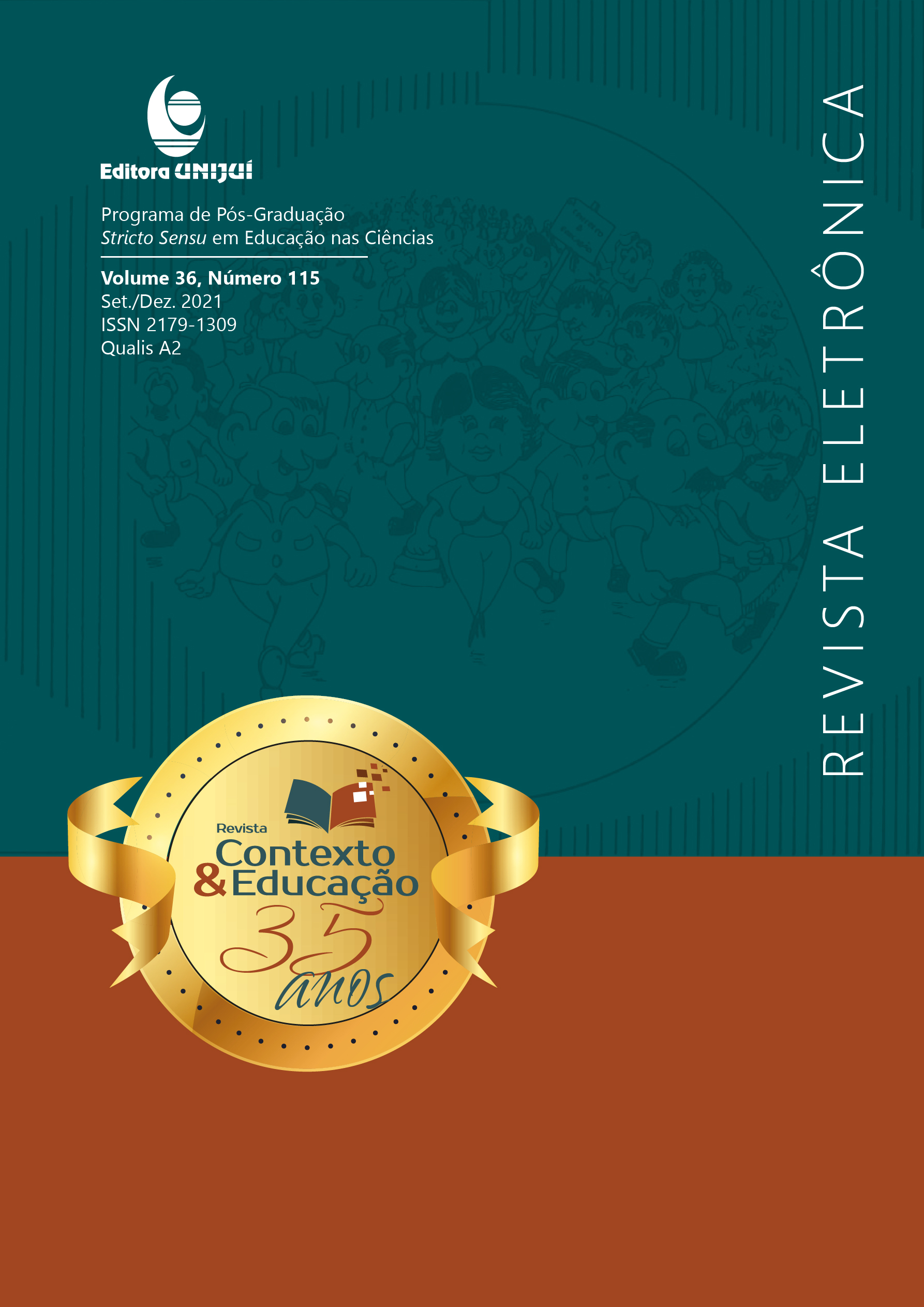GÊNERO E SEXUALIDADES EM FOCO: AS DISCUSSÕES QUE DISCENTES DO CURSO DE ESPECIALIZAÇÃO EM ENSINO DE BIOLOGIA, MODALIDADE A DISTÂNCIA, REALIZAM EM SUA PRÁTICA DOCENTE
GENDER AND SEXUALITY IN FOCUS: THE DISCUSSIONS THAT STUDENTS OF THE SPECIALIZATION COURSE IN BIOLOGY TEACHING, DISTANCE MODE, CARRY OUT IN THEIR TEACHING PRACTICE
DOI:
https://doi.org/10.21527/2179-1309.2021.115.9688Palavras-chave:
LGBT ; LGBTfobia; Prática Docente.Resumo
A presente pesquisa tem por objetivo compreender como discentes do curso de especialização em Ensino de Biologia, modalidade a distância, discutem a temática de gênero e sexualidades em sua prática docente. Para tanto, foi realizada a aplicação de questionário via Google Docs a discentes matriculados nos 8 polos que ofertam o referido curso de especialização pelo período de 18 a 25 de maio de 2019. Partimos da premissa de que a escola se constitui enquanto heteronormativa e LGBTfóbica. Além disso, o discurso biológico se configura como um regulador de práticas humanas. Desta forma, docentes da disciplina de biologia possuem um importante papel na desconstrução de práticas com enfoque no determinismo biológico para a compreensão de gênero e sexualidades, bem como no combate a preconceitos e discriminações. Os resultados evidenciam que, em sua maioria, os docentes discutem tranquilamente as temáticas, tornando-se mobilizadores neste processo de abertura para tais abordagens em âmbito educacional, mesmo com a falta de preparo e omissão por parte de outros docentes e da equipe pedagógica. Por fim, a maioria dos participantes concordam com a importância dos temas em âmbito escolar, utilizando das mais variadas metodologias e estratégias para a promoção do respeito e ao enfrentamento da LGBTfobia.
Downloads
Publicado
Como Citar
Edição
Seção
Licença
Ao publicar na Revista Contexto & Educação, os autores concordam com os seguintes termos:
Os trabalhos seguem a licença Creative Commons Atribuição 4.0 Internacional (CC BY 4.0), que permite:
Compartilhar — copiar e redistribuir o material em qualquer meio ou formato;
Adaptar — remixar, transformar e criar a partir do material para qualquer fim, inclusive comercial.
Essas permissões são irrevogáveis, desde que respeitados os seguintes termos:
Atribuição — os autores devem ser devidamente creditados, com link para a licença e indicação de eventuais alterações realizadas.
Sem restrições adicionais — não podem ser aplicadas condições legais ou tecnológicas que restrinjam o uso permitido pela licença.
Avisos:
A licença não se aplica a elementos em domínio público ou cobertos por exceções legais.
A licença não garante todos os direitos necessários para usos específicos (ex.: direitos de imagem, privacidade ou morais).
A revista não se responsabiliza pelas opiniões expressas nos artigos, que são de exclusiva responsabilidade dos autores. O Editor, com o apoio do Comitê Editorial, reserva-se o direito de sugerir ou solicitar modificações quando necessário.
Somente serão aceitos artigos científicos originais, com resultados de pesquisas de interesse que não tenham sido publicados nem submetidos simultaneamente a outro periódico com o mesmo objetivo.
A menção a marcas comerciais ou produtos específicos destina-se apenas à identificação, sem qualquer vínculo promocional por parte dos autores ou da revista.
Contrato de Licença (para artigos publicados a partir de outubro/2025): Os autores mantém os direitos autorais sobre seu artigo, e concedem a Revista Contexto & Educação o direito de primeira publicação.


